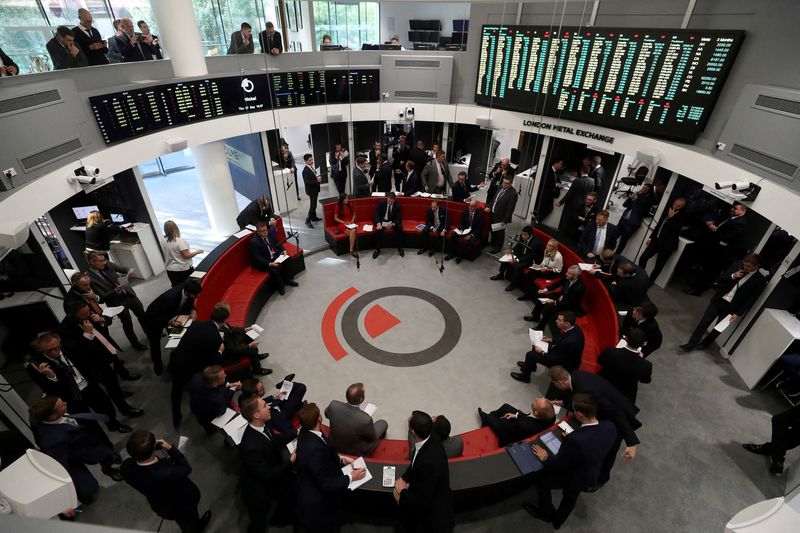By Pratima Desai and Clara Denina
LONDON (Reuters) -The London Metal Exchange (LME) on Thursday launched a discussion paper on the possibility of banning Russian aluminium, nickel and copper from being traded and stored in its system.
Western countries have imposed sanctions on Russian banks and wealthy individuals connected to President Vladimir Putin since Russia's invasion of Ukraine in February, but so far there are no restrictions on buying Russian metal.
Sources, however, said there was some concern that Russian metal producers, including Rusal, would not be able to sell its aluminium and would deliver it to registered warehouses of the 145-year-old metal exchange.
The world's largest and oldest metals exchange highlights three options and requests feedback by market participants by Oct. 28.
One option is to suspend Russian metal. However, the LME said it would not be appropriate to apply any suspension to metal that is already on warrant and stored in its warehouses.
"(A suspension) risks causing market disruption in the short term, but would provide certainty for the market," the exchange said in a release. "Not taking action could result in market disorder...On the other hand, taking action would have impacts on market participants."
A second option would maintain the current position of no restrictions.
A third would introduce thresholds so that once Russian metal reaches a specified percent of stock in its approved warehouses for a particular metal, the LME would move to suspend further deliveries.
Rusal, the world's largest aluminium producer outside China of around 6% of global supply, said on Wednesday in a letter seen by Reuters, that banning its metal would fuel volatility in the LME's aluminium contracts and create uncertainty about the exchange's role in the metals industry.
Currently, a number of Russian brands across multiple metals are approved as meeting the LME’s requirements and can be stored within its network of warehouses and delivered against its contracts.

Russia's Nornickel, controlled by Vladimir Potanin who was sanctioned by Britain in June, accounted for 7% of global mined nickel production last year. Russia also produced 920,000 tonnes of refined copper last year, about 3.5% of the world's total, according to the U.S. Geological Survey.
The LME has restricted new copper and zinc deliveries from Russia's Ural Mining & Metallurgical Co (UMMC) and a subsidiary following Britain's sanctioning of its controlling shareholder, Iskander Makhmudov.